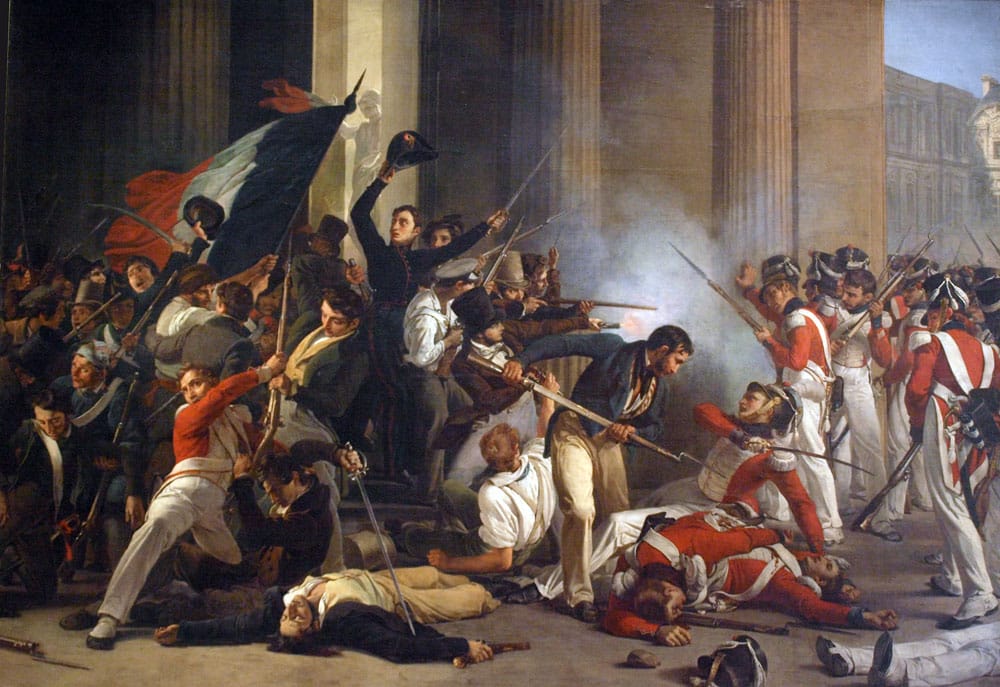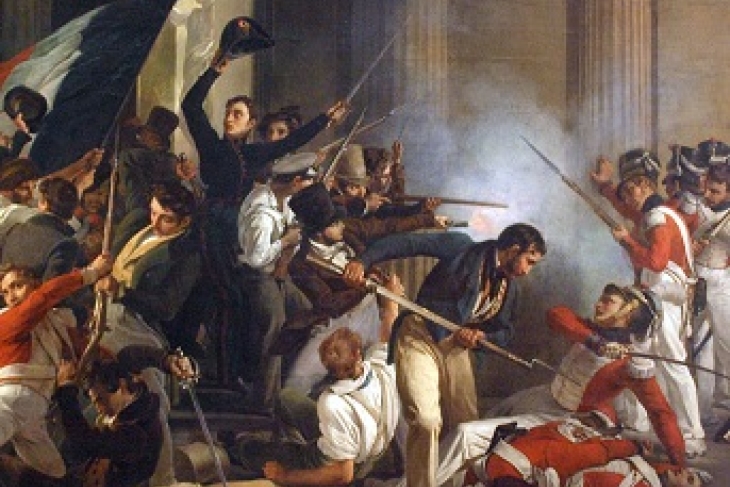
It was the best of times…
…for the Republican Party. Election Day 2014 was a rout, with the GOP winning full control of Congress and its largest House majority since World War II. Republican governors were re-elected in Florida, Wisconsin, Michigan, Kansas, and Maine. Democrat Pat Quinn was booted out of office in President Obama’s home state of Illinois. Republican now control two-thirds of state legislatures too. The GOP groundswell “will be good for education reform, especially reforms of the school-choice variety,” predicted Fordham’s Mike Petrilli.
It was the worst of times…
...for teachers’ unions. “It’s open season on teacher employment protection laws in U.S. state courts,” noted Fordham’s Brandon Wright on the heels of June’s Vergara v. California verdict holding California’s tenure laws unconstitutional. And the hits just kept on coming. In October, the commission that runs the financially troubled Philadelphia public school system unilaterally canceled the union’s contract and ruled teachers must contribute to their health insurance to free up money for classrooms. (A good decision to avoid the big squeeze.) Election Day made the annus horribilis complete. The $60 million the AFT and NEA spent on campaigns merely advertised their impotence. The unions took out their frustrations in the waning days of 2014 on a TIME magazine cover story on tenure. “It’s a lot easier to gin up phony outrage over magazine covers than reckon with the question of why voters are no longer buying what you’re selling,” retorted Fordham’s Michael Brickman.
It was the age of wisdom….
Despite defeats in a handful of states, Common Core remains intact throughout most of the nation. “The Common Core standards aren’t perfect, but they’re pretty darn good,” Petrilli argued at NPR’s Intelligence Squared debate in New York City in September. “Perhaps most importantly, after four years of hard work from our educators nationwide, they have momentum. They are raising expectations in our schools and raising the quality of teaching and learning.” Anti-Common Core rhetoric seemed to subside in the weeks following the mid-year election. But the standards’ stiffest challenge may come next year when Common Core-aligned testing begins in earnest. Millions who believe American education is second-rate while their own children’s schools are performing well may have that article of faith tested.
It was the age of foolishness…
…for New York Mayor Bill de Blasio. Overly enamored of his own Tale of Two Cities campaign rhetoric and presuming a populist mandate, he went to war with Eva Moskowitz, cancelling plans for three of her Success Academy charter schools. Pro-school-choice parents led by Moskowitz descended on Albany, winning both the support of Democratic New York Governor Andrew Cuomo and a state budget deal requiring the city to provide charter schools with public school space or funding for private rent. “There's no way in hell Eva Moskowitz should get free rent,” de Blasio had fumed during last year’s campaign. Only the New York Jets have suffered more humiliating defeats in Gotham this year. Mayor de Blasio has meanwhile turned his attention to ridding the city’s street of horse-drawn carriages.
It was the epoch of belief…
…for Fordham’s Chester E. Finn, Jr., who handed the reins to longtime Gadfly Michael J. Petrilli. In bidding farewell, Finn noted that education reform has come a long way: “We now judge schools by their results, not their inputs, intentions, or programs. The results we focus on deal, for the most part, with pupil achievement. And while we continue to struggle with the details, over the years we’ve developed academic standards that set forth the results we seek, we’ve created assessments and other measures to gauge how well they’re being achieved.” But there is urgent work ahead, notes Fordham President Petrilli, including an “incoherence problem” of various reforms working against one another—most notably the contradictory efforts to expand school-level autonomy while micromanaging teacher-evaluation processes from on high.
It was the epoch of incredulity…
…in Louisiana, where you’d be hard-pressed to find anyone who believes that Bobby Jindal’s reversal on Common Core is anything other than political opportunism. Every news article about his flip-flop mentioned the Louisiana governor is a 2016 presidential aspirant—all the explanation anyone seemed to need. And while he did not win TIME’s Person of the Year, he is Fordham’s 2014 Common Core Man of the Year for suing the federal government over the standards, thereby throwing “into profound jeopardy the most effective talking point that their opponents have: that the feds forced national standards down the states’ throats and that Uncle Sam is illegally dictating what schools will teach,” noted Fordham’s Robert Pondiscio, who argued the suit has virtually no chance of success.
It was the season of Light…
…for Eva Moskowitz. The founder of New York City’s Success Academy established herself as ed-reform’s unquestioned “It Girl” in 2014 by handing new mayor Bill de Blasio an embarrassing political defeat when attempted to block further expansion of her charter network. And those test results! Success Academy kids aced the state’s tough new Common Core-aligned tests—beating out most other New York City schools, public and charter alike. “This is Secretariat winning the Belmont by thirty-one lengths,” wrote Fordham’s Robert Pondiscio in the New York Daily News. “It’s Michael Jordan dropping sixty-three points on the Celtics in the playoffs. It’s Tiger Woods demolishing the field and winning the Masters by eighteen strokes.”
It was the season of Darkness…
…at the nation’s education schools, which continue to frustrate and disappoint. With books like Elizabeth Green’s Building a Better Teacher dominating the bestseller lists, and Common Core implementation dominating the conversation, ed schools continued to come under scrutiny in 2014. NCTQ published the second edition of their teacher prep review. But education schools remain an intractable policy problem: Just this week, Education Week reported that states or universities have shuttered or suspended fewer than sixty teacher preparation programs—out of 25,000—for poor performance over the last twenty-five years.
It was the spring of hope…
…for ESEA reauthorization. After Republicans took control of the Senate in the November midterms, chances of a new NCLB passing both houses of Congress increased significantly. And Secretary of Education Arne Duncan and President Obama have indicated they’re ready to play ball. Have we had our hopes up on this topic before? Yes. But now, there’s some substance to what we’re hoping for.
It was the winter of despair…
…for those concerned with real federal overreach. No, not Common Core, but the Office of Civil Rights and its six years of meddling: from the war on school discipline to a supposed “right” to take Advanced Placement courses. In 2015, the OCR might investigate a school because its rogue administrator approved “painting classrooms with Sherwin-Williams’s Toasted Pine Nut instead of Benjamin Moore’s Tuscany,” noted Joshua Dunn.
We had everything before us…
…including detailed data on how much schools are spending in the D.C. metropolitan area. Shedding light into the murky world of school finance, some encouraging findings emerged: Namely, most of the D.C.-area districts are spending significantly more on their poorest schools, for which they deserve credit. Unfortunately, the Washington area’s poorest district—Prince George’s County, Maryland—is the exception, thanks to its shaky property-tax base. You can’t redistribute what you don’t have.
We had nothing before us…
Well, it was right in front of our noses, but we just didn’t see the non-teachers that make up 50 percent of school staff. “[C]ontemporary education leaders should look carefully under this hood: school employees are the primary engines of student learning and they’re also by far the largest category in district budgets.”
We were all going direct to Heaven…
And lest we forget to be humble, recall that 2014 was the year, as decreed by No Child Left Behind, that every state would achieve universal proficiency. The grand work of ed reform complete, this was to be the last Education Gadfly ever produced, as we honored the Cincinnatean ideal, quit the capital and statehouses, and returned to our fields...
We were all going direct the other way.
…see you in 2015.
photo credit: Ard Hesselink via Flickr



